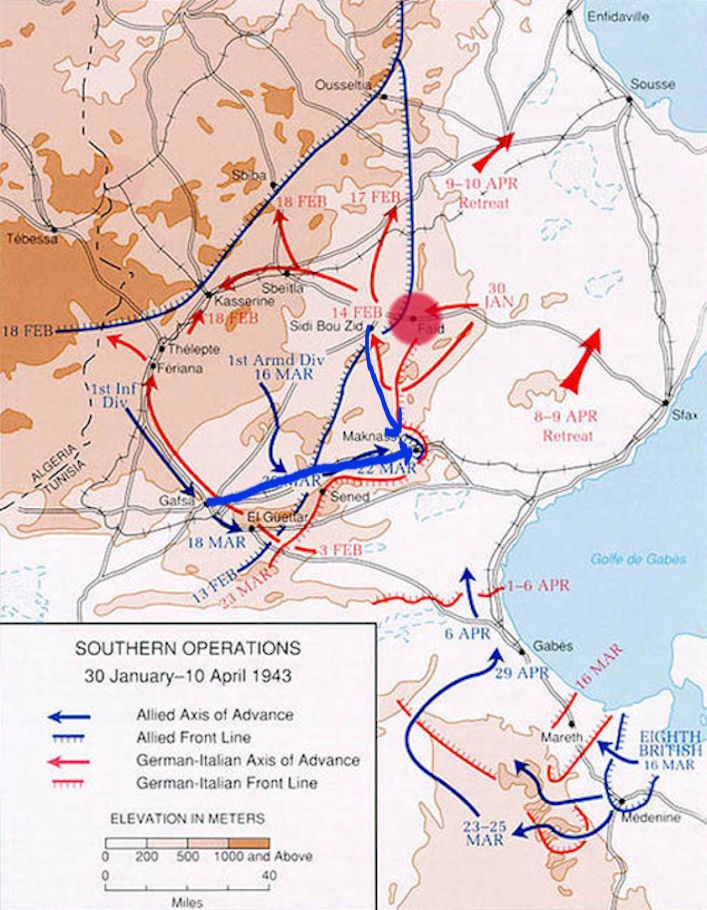![]()
The Charlotte News
Monday, February 1, 1943
FOUR EDITORIALS
![]()
![]()
Site Ed. Note:
—Alas, friend, here's the agent . . . is 't the name?
The captain, or whoever 's master here—
You see him screw his face up; what 's his cry
Ere you set foot on shipboard? "Six feet square!"
If you won't understand what six feet mean,
Compute and purchase stores accordingly—
And if in pique because he overhauls
Your Jerome, piano, bath, you come on board
Bare—why, you cut a figure at the first
While sympathetic landsmen see you off;
Not afterward, when long ere half seas over,
You peep up from your utterly naked boards
Into some snug and well-appointed berth,
Like mine for instance (try the cooler jug—
Put back the other, but don't jog the ice!)
And mortified you mutter, "Well and good;
He sits enjoying his sea-furniture;
'Tis stout and proper, and there's store of it:
Though I've the better notion, all agree,
Of fitting rooms up. Hang the carpenter,
Neat ship-shape fixings and contrivances—
I would have brought my Jerome, frame and all!"
![]()
What you messin' around with that boat for? There's a car waitin'. C'mon.
The front page reports of the new Allied offensive in Tunisia, toward Nazi-held Faid and Maknassy, as indicated on the map below by the red circle and the thick blue arrows. The Faid Pass had been captured by Rommel on Saturday. This period marked the beginning of a month of hard fighting and harsh news for the Allies in the Tunisian theater.

The figures from Stalingrad had been revised to suggest that the original size of the German divisions staging the offensive there, beginning in August, numbered 330,000, not 220,000 as more recently reported. They had been annihilated, as both German and Russian sources agreed, with now but 44,000 troops remaining, surrounded, starving. Numbers reported on the previous Wednesday, January 27, had the total remaining troops down to as few as 12,000. The report of this date indicated fully 240,000 had been killed and another 46,000 captured.
Field Marshal Friedrich Paulus was confirmed as the first of the German high command to be taken prisoner. Shortly afterward, General Maurice von Drebber became the second German commander to surrender.
Residents of the city, those who had not stayed to wage the fight themselves during the siege, streamed in columns, after spending months in the countryside living in caves and forests, returning by sled, horseback, or on foot to their former streets, finding, instead of familiar sights, piles of dead Germans, shells of buildings and once proud homes now in broken remains.
President Roosevelt is shown in the photograph while in Casablanca meeting with the commander of the Army defending Morocco, General George Patton, as well as General Mark Clark, who, with future Chairman of the Joint Chiefs, Lyman Lemnitzer, had performed a secret mission into Algeria in late October to prepare the friendly French forces there for the Allied landing two weeks hence on November 8 and to diminish any resistance from Vichy French forces, a mission which proved effective in saving Allied lives.
General Lemnitzer's predecessor as Chairman of the Joint Chiefs between 1957 and 1960, Nathan F. Twining, appointed, as with Lemnitzer, by President Eisenhower, also happens to have his separate photograph in juxtaposition to the others on this day's page in connection with an unrelated story. General Twining had been rescued, along with a crew and other passengers, numbering 14 in all, from an undisclosed location in the Southwest Pacific after the plane in which they were riding in mid-Janaury had gone down over the sea at night, leaving them to float stranded in two rafts, each made for six, for a full week.
Their food at ditching was reported by them to have consisted only of a can of sardines, (cf. both Thimble Theater and Alex Haley), a bar of cocoa chocolate, and water, fit for potable service, a'leaning, allowed perhaps one sip per mate daily, half filling one canteen, making them to act the duration out in a flipper's fate quite frailly. So they caught rainwater, perhaps in their hats, shot two albatrosses palely, flying over the sea-blown rafts, were not accursed but caught at that by the bird, a flying lady, for later service to we and thee.
General Twining's wife lived at the time in Charlotte.
The general also would later become Chief of Staff of the Air Force, between 1953 and 1957, likewise appointed by Eisenhower. During the Quemoy-Matsu crisis of 1958, General Twining recommended use of all necessary force, including the hydrogen bomb, to protect the outlying bulwark islands off Chiang Kai-shek's Nationalist Chinese haven in Formosa against threatened incursion by Mao Tse-tung's Red Chinese.
President Roosevelt was forced, upon request of the nominee to the post of Minister to Australia, Edward J. Flynn, former head of the National Democratic Committee, to withdraw his nomination after it had become fraught in the Senate with great political controversy over Mr. Flynn's fitness for the position. Even after clearing the Senate Foreign Relations Committee by a vote of 13 to 10 the previous week, the expression by several conservative Democrats of lack of support combined with uniform disfavor from Republicans to signal trouble on the floor to the extent that Mr. Flynn decided to avoid the public tar and feathering which appeared imminent and opt for a quick exit from public life.
His was the first such diplomatic appointment by FDR to be derailed.
"Plane Truth" on the editorial page remarks on the vast air superiority being enjoyed by United States airmen in all theaters, with 1,349 strikes reported against losses of 309 planes during 1942, not including among the downed Axis aircraft those bagged by ground fire. The War Department report had also indicated that less than half a percent of the aircraft were not reaching the front before crashing, a figure which had been rumored to be as high as 50%.
The 4:1 ratio of air superiority answered many critics of late on the subject, primary among whom, after a visit to the Pacific theater during mid-summer, had been none other than Congressman Lyndon Johnson, as praised for the effort by Paul Mallon July 30 and in an editorial in the column, titled "A Shakeup?" August 3.
Dorothy Thompson takes the opportunity on the tenth anniversary of the Third Reich’s emergence to power in Germany to recapitulate the manipulated sequence of events leading to it, events to which Ms. Thompson was eyewitness while covering Germany as a correspondent, kicked out by Hitler in 1934 for her critical eye.
In the last third of the piece, she offers some intuitive insight to Der Fuehrer’s state of mind according to current cases.
Well, we might continue the deeply contemplative inner colloquy:
"Shall I go to the Sports Palast, today? What say you, soothsayer?"
"Hmmm. Hmm-hmm. Yes, yes, I quite agree. Thane of Glamis, then Cawdor, then king of all the kingdom of all. Yes. This must be done. This shall be done."
"But, first, please, make it clear to me: shall I venture forth to the Sports Palast, today?"
"Most definitely. Most definitely."
"What? Fire all the generals and, then, as example to others, hang them, one by one, from meat hooks, upside down, along Wilhelmstrasse, until they die of starvation or from being pelted by rocks by the disgruntled population?"
"Yes, yes. I quite agree."
"And, in deference to you, I shall stay here in die Fuhrerbunker today and we shall play chess and let the others relate of my will to them. I shall not deign to go today to the Sports Palast, not out of fear, but out of respect for the omens of which you have quite honorably opened up to my mind and eye."
"That presents a most spiriting plan."
"Come, come, please do not pout, my friend. I do quite appreciate your service and in expression of my appreciation, I shall now promote you to second Spiritual Adviser to Der Fuehrer. Raise up your right hand for the oath of loyalty, Blondi."
![]()

This massy trunk that lies along,
And many more must fall--
For the very knave
Who digs the grave,
The man who spreads the pall,
And he who tolls the funeral bell,
The elm shall have them all!The tall abounding elm that grows
In hedge-rows up and down:
In field and forest, copse and park,
And in the peopled town,
With colonies of noisy rooks
That nestle on its crown.And well the abounding elm may grow
In field and hedge so rife,
In forest, copse, and wooded park,
And 'mid the city's strife,
For every hour that passes by
Shall end a human life!The phantom ends: the shade is gone;
The sky is clear and bright;
On turf, and moss, and fallen tree,
There glows a ruddy light;
And bounding through the golden fern
The rabbit comes to bite.The thrush's mate beside her sits
And pipes a merry lay;
The dove is in the evergreens;
And on the larch's spray
The fly-bird flutters up and down,
To catch its tiny prey.The gentle hind and dappled fawns
Are coming up the glade;
Each harmless furred and feathered thing
Is glad, and not afraid--
But on my saddened spirit still
The shadow leaves a shade.A secret, vague, prophetic gloom,
As though by certain mark
I knew the fore-appointed tree
Within whose rugged bark
This warm and living frame shall find
Its narrow house and dark.That mystic tree which breathed to me,
A sad and solemn sound,
That sometimes murmured overhead,
And sometimes underground;
Within that shady avenue
Where lofty elms abound.--from The Elm Tree by Thomas Hood
![]()
Knab Saxet, Nakmassy
Who in Kildare was the Patsy?
![]()
![]()
![]()